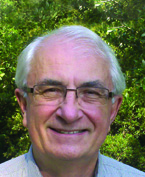Why Half the People Joining Churches Choose the Mega Variety
 The Willow Creek Church in suburban Chicago is the largest, most influential church in the United States. It has over 23,000 Sunday attendees but, more importantly, it provides the model and training for over 13,000 affiliate megachurches. It was founded in 1975 by Bill Hybels, who marketed not to existing Christians but to the vast numbers of the unchurched (now 16 percent of the population according to the recent PEW study). He picked a mall architect to design Willow Creek with no obvious religious symbols and offered “seeker” services with catchy secular music, short morality plays, and humor rather than overt religious language. The idea here is to ease unformed minds and hearts into a “spiritual” life and then on to full-blown Evangelicalism. The seeker service is a great show and overall carries a fairly humanist message.
The Willow Creek Church in suburban Chicago is the largest, most influential church in the United States. It has over 23,000 Sunday attendees but, more importantly, it provides the model and training for over 13,000 affiliate megachurches. It was founded in 1975 by Bill Hybels, who marketed not to existing Christians but to the vast numbers of the unchurched (now 16 percent of the population according to the recent PEW study). He picked a mall architect to design Willow Creek with no obvious religious symbols and offered “seeker” services with catchy secular music, short morality plays, and humor rather than overt religious language. The idea here is to ease unformed minds and hearts into a “spiritual” life and then on to full-blown Evangelicalism. The seeker service is a great show and overall carries a fairly humanist message.
Willow Creek Church attends to people’s needs for community and support by placing them in small groups of similar people. If you are a divorced mother in her thirties with a past alcohol problem they probably have a group for you. You don’t see many older people. The slick and professional staff receive reviews each Monday. It’s a model many churches see as the future of religion, and it’s successfully attracting humanism’s target market.
The unchurched are those who weren’t brought up in a strong religious setting or merely drifted away from it without any angst. Now they find themselves searching for answers to the big questions in life: What’s true? What stories do I tell my children? How can I deal with loneliness? What happens when I die? Am I moral? How can I experience great awe and wonder? How can I rebuild my shattered life? The folks at Willow Creek Church provide answers, and they do it methodically, humanely, and attentively.
Even so, why don’t more of the unchurched move toward humanism? Why do we meet such stubborn resistance and hostility in the general population? Much of it is related to fear—fear that if you don’t believe in God you don’t believe in anything; fear that your life is meaningless without religion; fear that you will be ostracized from your family and the general society; fear that only religion can raise our transcendent emotional spirits; fear of a decent into nihilism.
While humanism has powerful answers to those fears, the problem is that our lifestance is so little known. We have an emotionally satisfying and encompassing story that, if told well, can bend hearts, electrify minds, and satisfy the existential longings for meaning and wholeness. We have tried to condense our evolving tradition in the Humanist Manifesto III, titled “Humanism and its Aspirations.”
We can use this as a starting point to tell our story. Sure, we can argue about the inherent contradictions in the Bible, the pernicious effects of religion, and the logic of Darwinism until the end of time and not win people over unless their fears are answered. Willow Creek understands that people long for a complete and integrated story that quells their fears and existential angst. Sometimes, it seems to me, humanism needs a voice that’s more evocative than rational or strident. We need to address people’s real emotional needs and fears head-on.
In marketing, it’s said that it’s not the features that sell a product, but the benefits. We need to sing a song of praise to the glories of nature, the immediacy of love in our finite lives, and to being part of a community of hearts seeking to affirm the equal worth and dignity of each person. We rejoice in the scent of freedom and the path to progressive truth, are calmed by the caress of compassion, and lock arms in democratic solidarity. We truly live when we seek justice, reduce suffering, faint in the arms of love, delight at the surprise of wonder, find inner peace in quiet moments, and dance to the rhythms of life in this world that’s all we have. This is the story we need to tell. Give people what they seek and they will come.
